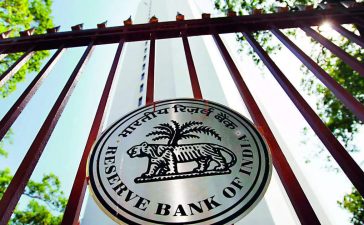A Sydney property developer who helped “wash” money for a blackmailer convicted for threatening to expose tax fraud will have to cough up more than $11m.
Plutus Payroll and its directors stole $105m from the Australian Taxation Office by skimming off GST and transferring it elsewhere, according to court findings.
Fifteen people have been sentenced over the scheme, including Adam Cranston, who was jailed for 15 years. Cranston is the son of the former deputy tax commissioner Michael Cranston.
A Plutus employee, Daniel Rostankovski, has also been convicted and jailed for heading up a scheme to blackmail the Plutus directors for millions by threatening to expose their illegal activities to the media and authorities.
Between February and April 2017, more than $24m was transferred from the account of the Lands Legal which was held on behalf of Plutus by the now-convicted solicitor Sevag Chalabian as a result of this blackmail.
Plutus liquidators Timothy Norman and Salvatore Algeri have pursued an associate of Rostankovski, developer Michael Teplitsky and his companies Tepcorp Holdings and Tepcorp Investments in a civil case in the New South Wales supreme court.
On Wednesday, Justice Scott Nixon found that on the balance of probabilities Teplitsky had knowledge of Rostankovski’s plans to launder the funds extracted from Plutus.
Teplitsky has not been criminally charged over the conduct.
The plans were openly discussed in intercepted phone calls between the two men and a third associate Daniel Hausman who has also been convicted over the blackmail, the judge found.
“Mr Teplitsky communicated his willingness both to engage in transactions which involved ‘washing’ money for a fee and also to create paperwork, in conjunction with Mr Hausman, to ensure that there were ‘no problems’,” he wrote.
The judge found Teplitsky had helped launder the Plutus funds by facilitating two loans – one for $4.6m and the other $7m – from one of Rostankovski’s firms, Luminous Investment Holdings.
Any reasonable person standing in the shoes of Teplitsky would have realised that Rostankovski’s plans to send the funds to various parties only to have them returned to him in a way that disguised their source was “a transgression of the ordinary standards of honest behaviour,” the judge wrote.
Denials the $4.6m transaction occurred at all and claims by Teplitsky that he was unaware the $7m in funds were part of a money laundering scheme were rejected by the court.
Teplitsky benefited from the $4.6m transaction because two property deeds he acted as guarantor for were rescinded as a result.
He also was paid $852,000 for facilitating the $7m loan.
“The Teplitsky parties assisted Mr Rostankovski in the implementation of his dishonest and fraudulent design,” Justice Nixon wrote.
“I find that Mr Teplitsky was wilfully blind as to Mr Rostankovski’s dishonest conduct, and wilfully and recklessly failed to make such inquiries that an honest and reasonable person would have made.”
The judge ordered Teplitsky to repay $11.152m to the liquidators and separately ordered Tepcorp Investments and Tepcorp Holdings to pay $6.852m plus interest.
Due to Teplitsky’s complete control over the two firms, the result of the court’s order will be that just over $11m will be repaid.
Teplitsky and his firms will also be forced to repay any benefits they gained from aiding the money laundering.
The commonwealth is by far the largest creditor of Plutus, claiming 98% of the funds allegedly owed.











